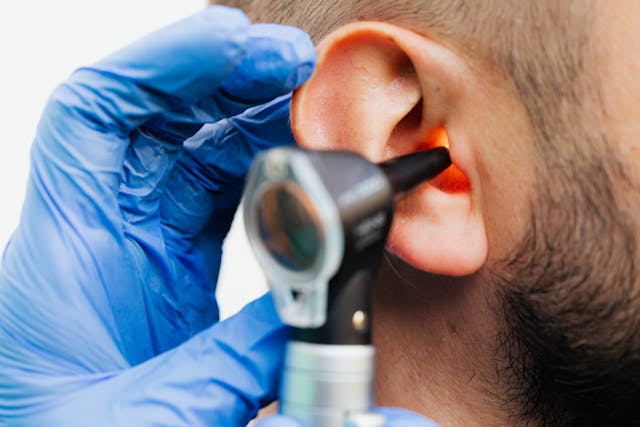Common ENT Disorders: Causes, Symptoms, and When to Seek Medical Help

The ear, nose, and throat (ENT) system plays a vital role in how we hear, breathe, speak, and maintain balance. ENT disorders can affect people of all ages—ranging from mild discomforts to chronic and serious conditions that impact quality of life. Understanding the most common ENT issues, their causes, symptoms, and knowing when to seek medical care is essential for timely treatment and overall wellness.
In this article, we’ll explore common ENT disorders, how to recognize them, and when professional care from an otolaryngologist (ENT specialist) is necessary.
What Is ENT?
ENT stands for Ear, Nose, and Throat—also known as otolaryngology. It is a medical specialty that deals with conditions involving the:
- Ears (hearing and balance)
- Nose (sinuses and smell)
- Throat (voice, swallowing, and breathing)
- Head and neck (lymph nodes, thyroid, and facial structures)
Common ENT Disorders and Their Symptoms
1. Sinusitis (Sinus Infection)
Cause: Inflammation of the sinuses due to viruses, bacteria, or allergies.
Symptoms:
- Nasal congestion and facial pressure
- Thick nasal discharge
- Headaches and postnasal drip
- Loss of smell
🩺 Seek help if symptoms last more than 10 days or recur frequently.
2. Ear Infections (Otitis Media/Externa)
Cause: Bacterial or viral infection of the middle or outer ear.
Symptoms:
- Ear pain and pressure
- Fluid drainage
- Hearing loss
- Fever (especially in children)
🩺 Consult an ENT if infections are chronic, affect hearing, or involve severe pain.
3. Tonsillitis and Sore Throats
Cause: Viral or bacterial infections (like strep throat).
Symptoms:
- Sore, scratchy throat
- Difficulty swallowing
- Swollen tonsils with white spots
- Fever and fatigue
🩺 Medical attention is needed for high fever, difficulty breathing, or frequent recurrence (may require tonsillectomy).
4. Hearing Loss
Cause: Aging, noise exposure, infections, or blockages like earwax.
Symptoms:
- Muffled or distorted hearing
- Ringing in the ears (tinnitus)
- Difficulty understanding conversations
- Turning up the volume frequently
🩺 See an ENT for evaluation, especially if the hearing loss is sudden or progressing.
5. Nasal Polyps
Cause: Chronic inflammation from allergies or asthma.
Symptoms:
- Persistent nasal congestion
- Decreased sense of smell
- Frequent sinus infections
- Postnasal drip
🩺 ENT care may involve medications or minor surgery to remove polyps.
6. Sleep Apnea and Snoring
Cause: Blockage of the airway during sleep.
Symptoms:
- Loud, chronic snoring
- Pauses in breathing
- Morning headaches
- Daytime fatigue
🩺 Consult an ENT for sleep studies and treatment options like CPAP or surgical correction.
7. Vertigo and Balance Disorders
Cause: Inner ear dysfunction (like benign paroxysmal positional vertigo – BPPV).
Symptoms:
- Dizziness or spinning sensation
- Nausea
- Loss of balance
- Ear pressure
🩺 Persistent or worsening symptoms should be evaluated by an ENT or neurologist.
When to See an ENT Specialist
While some ENT conditions resolve with home care, you should see a specialist if you experience:
- Persistent or chronic symptoms lasting more than 10 days
- Recurring infections (ear, sinus, throat)
- Hearing loss or ringing in the ears
- Difficulty swallowing or breathing
- Sudden changes in voice, smell, or hearing
- Growths, lumps, or unusual discharge in ears, nose, or throat
Early diagnosis and treatment can prevent complications and improve recovery outcomes.
Tips for Maintaining ENT Health
- Stay hydrated to keep mucous membranes moist
- Avoid smoking and secondhand smoke
- Practice good hygiene (especially during cold/flu season)
- Use ear protection in loud environments
- Manage allergies to prevent sinus issues
- Clean humidifiers and air filters regularly
🌬️ Healthy ENT habits lead to better breathing, clearer hearing, and improved overall comfort.
FAQs About Common ENT Disorders
1. What causes chronic sinus infections?
Often triggered by allergies, nasal polyps, or a deviated septum. Recurrent sinusitis may require imaging or ENT evaluation.
2. Are ear infections contagious?
Not directly, but the viruses or bacteria that cause them can spread through respiratory droplets.
3. Can tonsillitis be treated without antibiotics?
Yes, if it’s viral. Bacterial tonsillitis (like strep) requires antibiotics.
4. What is the link between allergies and ENT issues?
Allergies can cause chronic nasal inflammation, leading to sinusitis, ear pressure, and throat irritation.
5. How is hearing loss diagnosed?
An audiologist or ENT will perform a hearing test (audiogram) to assess hearing levels and underlying causes.
6. Is snoring always a sign of sleep apnea?
Not always, but chronic loud snoring could indicate obstructive sleep apnea and should be evaluated.
7. Are ENT problems in children different from adults?
Children are more prone to ear infections and enlarged tonsils/adenoids but many conditions affect all ages.
8. When is surgery necessary for ENT conditions?
Surgery is considered if symptoms are chronic, medication fails, or if there’s a structural issue (e.g., deviated septum, tonsil enlargement).
Conclusion
ENT disorders are incredibly common, but they don’t have to disrupt your life. By recognizing the early signs of common ear, nose, and throat problems and knowing when to seek medical help, you can take control of your health and prevent long-term complications. If in doubt, always consult an ENT specialist—they’re trained to diagnose and treat a wide range of conditions with both non-invasive and surgical methods.

